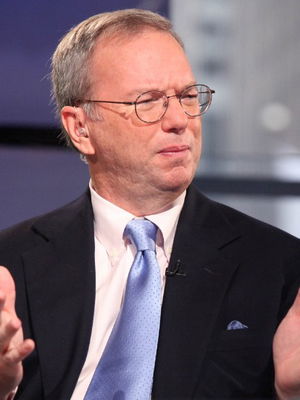MENU
Main Pages
- Home Page
- Add Your Business
- Cities
- Viator Cities
- Entertainment
- Restaurants
- Booking
- Suburb
- Listings
- All Countries
- All Regions
- All Cities
- All Districts
- United States
- Australia
- New Zealand
- Bahrain
- UAE
- South Korea
- Singapore
- South Africa
- Categories
- Latest News
- Subscribe
- Web Design
- FAQs
- Partners
- About Us
- Advertise
- Front Page
- Contact Us
- Privacy Policy
- Terms & Conditions
Pubs and Clubs Suburbs
entertainment
- Locations
- Categories
- Listings
- Bars
- Clubs
- Restaurants
- Bottle Shops
- Entertainment Venues
- Pubs
- Sports Clubs
- Dining
- Coffee Bar
- Breakfast Dining
- Nightclub
- RSL Clubs
- Sporting Events
- Festivals and Celebrations
- Food and Wine
- Concert or Performance
- Classes, Lessons, Workshops and Talks
- Community Event
- Exhibition and Shows
- Markets
- Business Event
restaurants
viator
- Locations
- Categories
- Listings
- Air, Helicopter & Balloon Tours
- Cruises, Sailing & Water Tours
- Cultural & Theme Tours
- Day Trips & Excursions
- Food, Wine & Nightlife
- Holiday & Seasonal Tours
- Sightseeing Tickets & Passes
- Outdoor Activities
- Shopping & Fashion
- Shows, Concerts & Sports
- Tours & Sightseeing
- Theme Parks
- Transfers & Ground Transport
- Walking & Biking Tours
- Water Sports
- Weddings & Honeymoons
- Multi-day & Extended Tours
- Kid Friendly
- Shore Excursions
- Luxury & Special Occasions
- Private & Custom Tours
- Viator VIP & Exclusive Tours
- Spa Tours
- Classes & Workshops
- Unique Experiences
- Air Tours
- Helicopter Tours
- Balloon Rides
- Inter-Island Flights
- Surfing Lessons
- Pottery Classes
- Dance Lessons
- Painting Classes
- Martial Arts Classes
- Glassblowing Classes
- Art Classes
- Music Classes
- Language Classes
- Sports Lessons
- Yoga Classes
- Craft Classes
- Spanish Lessons
- Catamaran Cruises
- Dhow Cruises
- Sunset Cruises
- Lunch Cruises
- Day Cruises
- Multi-day Cruises
- Night Cruises
- Glass Bottom Boat Tours
- Dinner Cruises
- Water Tours
- Sailing Trips
- Submarine Tours
- Airboat Tours
- Dolphin & Whale Watching
- Duck Tours
- Brunch Cruises
- Gondola Cruises
- Jewish Tours
- Christian Tours
- Colosseum Underground Tours
- Famous Places In Rome
- Architecture Tours
- Basilica Tours
- Cultural Tours
- Movie & TV Tours
- Historical & Heritage Tours
- Literary, Art & Music Tours
- LGBT Friendly Tours
- Ancient Rome Tours
- Ghost & Vampire Tours
- Archaeology Tours
- Rome To Capri
- Rome To Amalfi
- Rome To Assisi
- Rome To Siena
- Rome To Tuscany
- Rome To Pisa
- Rome To Positano
- Rome To Sorrento
- Rome To Florence
- Rome To Venice
- Rome To Orvieto
- Rome To Pompeii
- Day Trips
- Rail Tours
- Trains To Pompeii
- Trains To Florence
- Private Day Trips
- Verona Day Trips from Milan
- Genoa Day Trips from Milan
- Italian Riviera Multi Day Trips from Milan
- Swiss Alps Day Trips from Milan
- Venice Day Trips from Milan
- Cinque Terre Day Trips from Milan
- Sake Tasting and Brewery Tours
- Street Food Tours
- Market Tours
- Distillery Tours
- Chocolate Tours
- Cooking Classes
- Bar, Club & Pub Tours
- Dining Experiences
- Wine Tasting & Winery Tours
- Dinner Theater
- Food Tours
- Nightlife
- Entertainment Packages
- Beer & Brewery Tours
- Coffee & Tea Tours
- Afternoon Teas
- Father's Day
- Christmas
- Mother's Day
- Halloween
- New Years
- National Holidays
- Valentine's Day
- Seasonal Events
- Day of the Dead
- Easter
- Kid Friendly Tours & Activities
- Once in a Lifetime Experiences
- Romantic Tours
- Luxury Tours
- Rome in 3 Days
- 5-Day Tours
- 4-Day Tours
- 3-Day Tours
- Rome in 2 Days
- Overnight Tours
- Multi-day Cruises
- Multi-day Tours
- Multi-day Rail Tours
- Obstacle Courses
- Other Outdoor Activities
- Fishing Charters & Tours
- 4WD, ATV & Off-Road Tours
- Hiking & Camping
- Golf Tours & Tee Times
- Safaris
- Nature & Wildlife
- Ski & Snow
- Horseback Riding
- Adrenaline & Extreme
- Paintball
- Tennis
- Eco Tours
- Paragliding
- Climbing
- Lift Tickets
- Running Tours
- Ski & Snowboard Rentals
- Ziplines
- Custom Private Tours
- Private Sightseeing Tours
- Viator Private Guides
- Shopping Passes & Offers
- Shopping Tours
- Fashion Shows & Tours
- Western Caribbean Shore Excursions
- Southern Caribbean Shore Excursions
- Eastern Caribbean Shore Excursions
- Ports of Call Tours
- Port Transfers
- Light & Sound Shows
- Jazz
- Classical Music
- Opera
- Flamenco
- Comedy
- Concerts & Special Events
- Theater, Shows & Musicals
- Sporting Events & Packages
- Family-friendly Shows
- Adults-only Shows
- Dinner Packages
- Ballet
- Cirque du Soleil
- Cabaret
- Attraction Tickets
- Museum Tickets & Passes
- Sightseeing Passes
- Sporting Event Tickets & Passes
- Zoo Tickets & Passes
- Sightseeing Packages
- Nightclub Passes
- Onsens
- Hammams & Turkish Baths
- Day Spas
- Roman Baths
- Thermal Spas & Hot Springs
- Arab Baths
- Water Parks
- Theme Park Tickets & Tours
- Universal Theme Parks
- Disney® Parks
- Bike Rentals
- Sustainable Tours
- Trolley Tours
- Sidecar Tours
- Volunteer Tours
- Tuk Tuk Tours
- Audio Guided Tours
- Vespa Rentals
- Pedicab Tours
- Layover Tours
- Escape Games
- Classic Car Tours
- Trikke Tours
- Underground Tours
- Segway Tours
- Self-guided Tours & Rentals
- Fun and Games
- Plantation Tours
- Private Tours
- Photography Tours
- Horse Carriage Rides
- Half-day Tours
- Full-day Tours
- Hop-on Hop-off Tours
- Night Tours
- City Packages
- Bus & Minivan Tours
- Vespa, Scooter & Moped Tours
- Super Savers
- Skip-the-Line Tours
- Motorcycle Tours
- City Tours
- Private Transfers
- Private Drivers
- Rome Hotel Port Transfers
- Fiumicino Airport Port Transfers
- Central Rome Port Transfers
- Rome Airport Transfers
- Ciampino Airport Transfers
- Fiumicino Airport Transfers
- Airport Parking
- Airport & Ground Transfers
- Airport Services
- Ferry Services
- Airport Lounges
- Transportation Services
- Water Transfers
- Rail Services
- Bus Services
- Port Transfers
- Milan Ground Transfers
- Unique Experiences
- Viator VIP Tours
- Viator Exclusive Tours
- Bike & Mountain Bike Tours
- Walking Tours
- Jetpacks
- Scuba Diving
- Flyboarding
- Kayaking & Canoeing
- Surfing & Windsurfing
- Snorkeling
- Other Water Sports
- Water Equipment
- Stand Up Paddleboarding
- Swim with Dolphins
- Jet Boats & Speed Boats
- River Rafting & Tubing
- Parasailing
- Waterskiing & Jetskiing
- Boat Rental
- Shark Diving
- Float Trips
- White Water Rafting
- Tubing
- Honeymoon Packages
- Wedding Packages
booking
suburb
- Locations
- Categories
- Listings
- Apartments
- Bed and Breakfast
- Backpackers
- Conference Facilities
- Guest Houses
- Hotels
- Motels
- Resorts
- Student Accommodation
- Tourist Attractions
- Other
- House Boats
- Farm Stays
- Self Contained Accommodation
- Casino Accommodation
- Holiday Houses
- Lodges
- Cabins and Cottages
- Workforce Accommodation
- Bars
- Clubs
- Restaurants
- Bottle Shops
- Entertainment Venues
- Pubs
- Sports Clubs
- Dining
- Coffee Bar
- Breakfast Dining
- Nightclub
- RSL Clubs
- Zoos
- Theme Parks
- Museums
- Art Galleries
- Heritage
- Shopping
- Theatres
- Activity Attractions
- Day Spas
- Casinos
- In the Water
- In the Air
- Nature Attractions
- Tours Attractions
- Family Fun Attractions
- On the Ground Attractions
- Diving Attractions
- Jetskis Attractions
- Jetboat Attractions
- Cruising
- Kayaking
- Fishing Charters
- Scenic Flights
- Hot Air Balloons
- Tigermoth
- Skydiving
- Horse Riding Attractions
- Petting Zoos
- Animals in the WIld Attractions
- Whale Watching
- Bowling
- Mini Golf
- Ice Skating
- Go Kart Attractions
- Mazes
- Abseiling
- Rock Climbing
- Aquariums
- National Parks
- Parasailing
- Class/workshop
- Entertainment
- Farms
- Landmark Building
- Markets
- Industry Attractions
- Observatories and plantariums
- Parks, Gardens and Cemetaries
- Scenic Drives & Walks
- Vineyards, Wineries and Breweries
- Adventure Attractions
- Rest and Recreation
- Cultural Attractions
- Golf Courses
- Shopping Centres
- Cinemas
- Motor racing
- Horse Racing
- Pools & Gyms
- Mountain Biking
- Paintball and Skirmish
- Events
- Hire
- Laser Tag
- Visitor Information Centre
- Activities
- Cafes
- Self-Contained
- Backpackers and Hostels
- Retreats and Lodges
- Caravan and Camping
- Tourist Park
- Holiday Villas
- Holiday Rentals
- Hosted Accommodation
- Chalets
- find
- ATM & Eftpos Services
- ATM Locator
- Abattoirs
- Aboriginal & Torres Strait Islander Groups
- Aboriginal Arts & Crafts
- Abrasive Blasting
- Abrasive Blasting Equipment
- Abrasives
- Access Covers & Gratings
- Accommodation
- Accountants
- Acoustic Equipment & Services
- Acoustical Engineers
- Acupuncturists
- Adhesive Tapes
- Adult Shops & Entertainment
- Adventure Holidays & Tours
- Advertising Agencies
- Advertising Distributors
- Advertising General
- Advertising Outdoor Posters
- Aerial Agricultural Services
- Aged Care Services & Support
- Agents General
- Agistment
- Agricultural Machinery
- Air Cargo Services
- Air Compressors
- Air Tools & Accessories
- Air-conditioning Cleaning
- Air-conditioning Equipment Installation & Maintenance
- Air-conditioning Automotive
- Air-conditioning Commercial & Industrial
- Air-conditioning Home
- Aircraft Charters
- Aircraft Equipment, Maintenance & Mfrs
- Airlines & Airline Agents
- Airport Transfers
- Airports
- Alarms Security
- Alterations Clothing
- Aluminium Fabricators & Repairers
- Aluminium Suppliers
- Amusement Centres
- Amusement Equipment
- Anaesthetists
- Animal Shelters
- Anodisers
- Antique Dealers
- Antiques Reproductions & Restorations
- Appliance Repairs & Parts
- Aquaculture
- Aquariums & Accessories
- Architects
- Armoured Car Services
- Art Dealers
- Art Schools
- Artificial Flowers & Plants
- Artists
- Artists Supplies
- Arts & Crafts
- Asbestos Removal & Consultants
- Asphalt & Bitumen
- Astrologers
- Auction Rooms
- Auctioneers
- Audiovisual Equipment & Hire
- Audiovisual Equipment Repairs
- Australiana Products
- Auto Electrical Services
- Auto Parts Recyclers
- Awnings
- A-Z Section
- Baby & Childrens Clothing
- Baby Furniture, Prams & Accessories
- Baby Seat Installations
- Babysitters
- Backpackers Accommodation
- Badges & Badgemaking Supplies
- Bags & Sacks
- Bailiffs
- Bakeries
- Balloons Events & Party
- Balloons Hot Air
- Balustrading
- Bamboo Products
- Banana Growers
- Bands, Choirs & Orchestras
- Bankruptcy
- Banks & Building Societies
- Bar Supplies
- Barbeques
- Barbers
- Barges
- Barricades
- Barristers
- Bars & Nightclubs
- Bars & Wall Units
- Barter & Trade Exchanges
- Bath & Basin Resurfacers
- Bathroom Equipment & Accessories
- Bathroom Renovators
- Batteries
- Bearings & Bushings
- Beauty Salon Equipment & Supplies
- Beauty Salons
- Beauty Schools
- Bed & Breakfast Accommodation
- Beds & Bedding
- Bee & Wasp Removal
- Beekeepers
- Bikes & Accessories
- Billiard Tables & Accessories
- Bird Breeders
- Blasting Contractors
- Blind & Curtain Cleaning & Repairs
- Blinds
- Boat Builders & Repairers
- Boat Charters & Cruises
- Boat Cleaners & Detailers
- Boat Designers
- Boat Equipment
- Boat Hire
- Boat Licence Testing
- Boats Sales & Service
- Body & Ear Piercing
- Body Corporate Management
- Bolts & Nuts
- Book Retailers
- Bookbinders
- Bookkeepers
- Books Second-hand
- Boring & Drilling
- Bottleshops
- Boutiques
- Bowen Therapy
- Bowls Clothing & Equipment
- Boxes, Cartons & Cases
- Brake & Clutch Services
- Breweries
- Brick Cleaners
- Bricklayers & Blocklayers
- Bricks & Blocks
- Bridal Wear & Accessories Sales & Hire
- Builders
- Builders Alterations & Renovations
- Building & Pest Inspections
- Building Certification Services
- Building Designers
- Building Maintenance Services
- Building Supplies
- Building Supplies Second-hand
- Building Sustainability & Energy Assessors
- Buildings Prefabricated & Transportable
- Building Construction & Project Management
- Bus & Coach Charters & Tours
- Bus & Coach Services
- Business Brokers
- Business Colleges
- Business Consultants
- Business Records Management or Destruction
- Butchers
- Butchers Supplies Wsalers & Mfrs
- CCTV Systems
- CDs & DVDs
- Cabinet Makers
- Cabinet Makers Supplies
- Cabling Fibre Optic
- Cafes
- Cake & Pastry Shops
- Cake Decorators & Decorating Schools
- Calendars
- Calligraphy
- Campervans & Motor Homes Sales & Hire
- Camping Equipment
- Camps
- Cane Products
- Canoeing & Kayaking
- Canopies Boat & Vehicle
- Canvas & Synthetic Fabric Products
- Car Accessories
- Car Alarms
- Car Auctions
- Car Cleaning & Detailing
- Car Parks & Parking Systems
- Car Restorations & Supplies
- Car Sales New
- Car Sales Used
- Car Sound & Audio
- Car, 4WD & Minibus Rental
- Caravan & Tourist Parks
- Caravans & Camper Trailers & Accessories
- Caravans & Camper Trailers Hire
- Caravans & Camper Trailers Repairs
- Carburettors & Fuel Pumps
- Career Counselling
- Carpenters
- Carpet & Upholstery Cleaners
- Carpet & Vinyl Layers & Repairs
- Carpet Dyeing
- Carpets & Flooring
- Carpets & Rugs Oriental & Handmade
- Carpets & Rugs Overlocking
- Carports & Pergolas
- Carriers Car Transport
- Carriers Heavy Transport
- Carriers Light Transport
- Cartoonists & Caricaturists
- Cartridges Toner & Ink
- Cash Registers & POS Equipment
- Casting Agents
- Castors & Wheels
- Cat Boarding & Catteries
- Cat Breeding
- Caterers
- Catering Equipment
- Catering Equipment Hire
- Ceilings
- Celebrants
- Cement Supplies
- Cemeteries
- Ceramics
- Chains & Chain Equipment
- Chainsaws & Brushcutters
- Charities & Organisations
- Chemical Suppliers
- Chemicals Agricultural
- Chemicals Industrial
- Chemists & Pharmacies
- Child Care Centres
- Childrens Parties & Play Centres
- Chimney Sweeps
- Chiropractors
- Church & Religious Supplies
- Churches & Religious Organisations
- Cinemas & Theatres
- Civil Contractors
- Civil Engineers
- Cladding
- Clairvoyants
- Cleaners Commercial & Industrial
- Cleaners Equipment
- Cleaners High Pressure
- Cleaners Residential
- Cleaning Supplies
- Clocks Sales & Repairs
- Clothes Hangers
- Clothes Lines
- Clothing Manufacturers
- Clothing Custom Tailored
- Clubs Archery
- Clubs Athletic
- Clubs Baseball & Softball
- Clubs Basketball
- Clubs Bicycle
- Clubs Billiards & Snooker
- Clubs Bird
- Clubs Bowling
- Clubs Boxing
- Clubs Bushwalking
- Clubs Car
- Clubs Community Service
- Clubs Cricket
- Clubs Croquet
- Clubs Dance
- Clubs Dog
- Clubs Fencing
- Clubs Fishing
- Clubs Flying & Gliding
- Clubs Football
- Clubs Hockey
- Clubs Life Saving & Surfing
- Clubs Model Aeroplane
- Clubs Motor Racing
- Clubs Motorcycle
- Clubs Netball
- Clubs Pony
- Clubs Racing
- Clubs Rowing
- Clubs Scuba Diving
- Clubs Senior Citizens
- Clubs Shooting
- Clubs Skateboard
- Clubs Skiing
- Clubs Social & General
- Clubs Sporting Miscellaneous
- Clubs Squash
- Clubs Swimming
- Clubs Table Tennis
- Clubs Tennis
- Clubs Volleyball
- Clubs Yacht
- Coaching Business & Life
- Coatings Decorative & Texture
- Coatings Protective
- Coffee & Tea Merchants
- Coffee Machines & Supplies
- Coin Dealers
- Collectables & Memorabilia
- Colonic Irrigation
- Community Services
- Compost Waste Solutions
- Computer & Console Games
- Computers
- Computers Equipment & Supplies
- Computers Network & System Consultants
- Computers Rental & Leasing
- Computers Repairs, Installation & Maintenance
- Computers Training
- Concrete Additives, Accessories, Tools & Equipment
- Concrete Cutting, Drilling, Grinding & Sawing
- Concrete Formwork
- Concrete Kerbs, Edging & Channelling
- Concrete Polishing & Sealing
- Concrete Pre-cast Panels
- Concrete Products
- Concrete Pumping Services
- Concrete Reinforcements
- Concrete Repairs & Treatment
- Concreters
- Concrete Pre-mixed
- Confectionery
- Conference & Function Venues
- Containers Cargo & Freight
- Conveyancing
- Conveying & Elevating Equipment
- Cooking Classes
- Cool Room Builders
- Copper & Brass Products
- Cork Merchants
- Cosmetic & Dental Surgery & Procedures
- Cosmetics
- Costumes Sales & Hire
- Counselling Services
- Counselling Services Welfare
- Couriers
- Crafts & Supplies
- Crane Distributors, Mfrs & Repairs
- Crane Hire
- Credit Unions & Societies
- Cremation
- Crushing & Screening
- Curtains & Accessories
- DJs Mobile
- Dance Schools
- Dance Wear & Accessories
- Data Cabling & Communications
- Debt Collectors
- Debt Relief Services
- Decking
- Dehumidifiers
- Delicatessens
- Demolition
- Dent Removal Paintless
- Dental Laboratories & Technicians
- Dental Supplies & Equipment
- Dentists
- Dentists Specialists
- Denture Clinics
- Department Stores
- Detectors & Locating Services
- Diamond Merchants
- Dictating Machines
- Diesel Mechanics
- Dietitians
- Differentials Automotive
- Digital DVD & Video Production
- Direct Marketing Services
- Directories
- Disabled Care Services & Support
- Discount Stores
- Dishwashing Machines Repairs
- Display & Exhibition Equipment
- Disposal Stores
- Diving
- Diving Equipment & Supplies
- Doctors & Medical Centres
- Doctors Specialists
- Dog & Cat Clipping & Grooming
- Dog Boarding Kennels
- Dog Breeders
- Dog Trainers
- Dolls & Doll Accessories
- Domestic Help Services
- Door & Gate Operating Equipment
- Doors & Door Fittings & Repairs
- Drafting Services
- Drainage Equipment & Systems
- Drama Schools
- Dredging
- Dress Materials
- Dressmakers & Designers
- Drinking Water Suppliers
- Drive Shaft Mfrs & Repairers
- Driving Schools
- Driving Schools Advanced & Defensive
- Drug & Alcohol Testing
- Dry Cleaners
- Duty Free Shops
- Eco-tourism
- Editing, Proofreading & Writing Services
- Electric Generators & Motors Sales & Service
- Electric Power Line Contractors
- Electrical Appliance Retailers
- Electrical Engineers
- Electrical Switchboards
- Electrical Testing & Tagging
- Electrical Wholesalers
- Electricians
- Electricity Suppliers
- Electronic Equipment Sales & Repairs
- Electroplaters
- Elevating Work Platform Sales & Hire
- Embroidery
- Employment Services
- Employment Labour Hire
- Emu & Ostrich Farmers
- Energy Management Consultants & Services
- Engine Reconditioners
- Engineers Consulting
- Engineers General
- Engineers Supplies
- Engines Diesel
- Engines Petrol
- Engravers
- Entertainers
- Entertainment Promoters
- Environmental & Pollution Consultants
- Erosion Control & Soil Stabilisation
- Event Equipment Hire
- Event Organisers
- Excavating & Earthmovers
- Excavating & Earthmoving Equipment Parts & Repairs
- Exercise Physiologists
- Explosives
- Export Agents
- Exporters
- Fabrics & Clothing Patterns
- Family Day Care
- Family Planning
- Fans & Blowers
- Farm & Agricultural Advisory Services
- Farm Equipment & Rural Supplies
- Farmers
- Farriers & Blacksmiths
- Fashion
- Fashion Accessories
- Fasteners Industrial
- Fencing
- Fencing Supplies
- Feng Shui
- Ferries
- Fertilisers Supplies & Spreading
- Fibreglass Fabricators & Repairers
- Fibreglass Supplies
- Film Production
- Filters Sales & Service
- Finance Brokers, Loans & Mortgages
- Financial Planning
- Fire Protection Consultants & Equipment
- Fireplaces & Accessories
- Firewood Supplies
- Fireworks
- First Aid Instruction & Supplies
- Fishermen
- Fishing Bait
- Fishing Nets
- Fishing Tackle
- Fishing Trips & Charters
- Fitness Centres & Gyms
- Fitness Equipment
- Flagpoles & Masts
- Flags, Banners & Pennants
- Floor Covering Layers
- Floor Coverings
- Floor Sanding & Polishing
- Floor Treatment Products & Services
- Floors Anti Slip & Epoxy
- Floors Wood
- Florists
- Florists Supplies
- Flying Schools
- Foam Fabricators & Processors
- Food & General Stores
- Foreign Currency Exchanges
- Fork Lifts Sales & Service
- Formal Wear Sales & Hire
- Four Wheel Drive Equipment & Accessories
- Franking & Folding Machines
- French Polishers
- Fridge Repairs
- Frozen Foods Mfrs & Wsalers
- Fruit & Vegetable Growers & Packers
- Fruit & Vegetables
- Fuel & Oil Additives
- Fuel Injection Diesel
- Fuel Injection Petrol
- Fuel Merchants
- Funerals
- Furniture Removals & Storage
- Furniture Repairs & Restorations
- Furniture Retailers
- Furniture Cane & Wicker
- Furniture Designer & Custom-made
- Furniture Outdoor
- Furniture Second-hand
- Galvanising & Tinning
- Games Indoor
- Garage Builders & Mfrs
- Garage Doors & Fittings
- Garage Storage Systems
- Garbage Disposal Units
- Garden Equipment & Supplies
- Garden Sheds
- Gardeners
- Gas Cylinder Testing
- Gas Suppliers
- Gasfitters
- Gates Sales & Installation
- Gauges Pressure
- Gazebos
- Gearboxes Automotive
- Generators Sales & Repairs
- Geologists
- Geotechnical Engineers
- Gift Services
- Gift Shops
- Glass & Glaziers
- Glass Artistry & Blowing
- Glass Safety
- Go-karts
- Gold & Silver Merchants
- Golf Coaches
- Golf Course Construction
- Golf Equipment & Accessories
- Golf Practice Ranges
- Graffiti Removal
- Granite & Marble
- Graphic Design Services
- Grease Trap Cleaning
- Guns & Ammunition
- Gutter Cleaners
- Guttering & Spouting
- Gymnastics
- Hair Treatment & Replacement
- Hairdressers
- Hairdressers Supplies
- Hairdressing Schools
- Halls
- Handbags Sales & Repairs
- Handyman Services
- Hang-gliding & Paragliding
- Hardware Supplies
- Hats & Caps
- Health Foods & Supplements
- Health Insurance
- Health Resorts
- Health Support Organisations
- Hearing Aids
- Hearing Conservation Consultants
- Heat Treatment Metal
- Heating Appliances & Systems Sales & Repairs
- Helicopter Services
- Herbalists
- Hi-Fi Equipment
- Hire Baby Equipment
- Hire Bikes, Scooters & Mopeds
- Hire Builders, Handymans & Industrial Equipment
- Hire Camping & Leisure Equipment
- Hire Household Appliances & Furniture
- Hire Medical & Disabled Persons Equipment
- Hire Office Equipment & Furniture
- Hobbies, Models & Accessories
- Holiday Apartments & Resorts
- Home Automation
- Home Brewing Equipment & Supplies
- Home Health Care Aids & Mobility Equipment
- Home Improvements & Repairs
- Home Theatre
- Homewares
- Homoeopaths
- Honey Merchants
- Horse Care
- Horse Dentists
- Horse Riding
- Horse Stud Breeders & Dealers
- Horse Trainers & Breakers
- Hoses & Fittings Sales & Repairs
- Hospital Equipment & Supplies
- Hospitals Private
- Hospitals Public
- Hot Water Systems
- Hotel & Motel Brokers
- Hotel & Restaurant Kitchen Equipment
- Hotel, Restaurant & Club Supplies
- Hotels Accommodation
- House Boats Hire
- House Minding
- House Removals
- House Restumping & Raising
- Hunting Safaris
- Hydraulic Equipment Sales & Repairs
- Hydroponics Equipment & Supplies
- Hypnotherapists
- Ice Cream Mfrs & Retailers
- Ice Making Machines
- Ice Skating Rinks
- Ice Supplies
- Importers & Imported Products
- Indoor Plant Hire
- Indoor Sports Centres
- Insect Screens
- Inspection & Testing Services
- InstrumentsGeneral
- Insulation Contractors
- Insulation Supplies
- Insurance Agents & Advisors
- Insurance Assessors & Loss Adjusters
- Insurance Brokers
- Insurance General
- Insurance Life
- Insurance Motor Vehicle
- Intercommunication Equipment & Systems
- Interior Designers & Decorators
- Internet Cafes
- Internet Service Providers
- Interpreters & Translators
- Introduction Services Social
- Investigation Services
- Investment Services
- Ironing & Housekeeping Services
- Irrigation & Sprinkler Systems
- Jacks
- Jeans Retailers
- Jet Skis
- Jewellers
- Jewellers Supplies
- Joinery
- Juice Bars
- Jukebox Hire
- Jumping Castles
- Justices Of The Peace
- Karaoke Equipment Hire
- Kit Homes
- Kitchen Appliances & Kitchenware
- Kitchens, Renovations & Equipment
- Kites & Kiteboarding
- Knitting Wool & Accessories
- LP Gas Conversions Vehicle
- Ladders, Steps & Trestles
- Laminates & Laminated Panels
- Laminating Equipment & Services
- Landclearing & Firebreaks
- Landscape Architects
- Landscape Supplies
- Landscapers & Designers
- Language Instruction
- Laser Clinics
- Laser Equipment & Services
- Lattice & Privacy Screens
- Laundries & Laundromats
- Laundry Equipment & Supplies
- Lawn & Turf Supplies
- Lawnmowers Sales & Repairs
- Lawnmowing & Maintenance
- Leadlights Sales & Repairs
- Leasing Consultants & Services
- Leather Goods
- Leather Reconditioning & Cleaning
- Libraries Public
- Lifestyle Resorts
- Lifts
- Lifts Maintenance & Service
- Lighting & Accessories
- Lightning Protection
- Limousines
- Line Marking
- Linen Hire Services
- Lingerie & Hosiery
- Liquidators
- Livestock Transport Services
- Locksmiths
- Logistics Warehouse & Offshore
- Lubricants & Lubricators
- Magnetic Therapy
- Magnets & Magnetic Supplies
- Mail Boxes
- Mailroom Services
- Make Up Artists & Supplies
- Management Consultants
- Manchester
- Maps & Mapping
- Marinas
- Marine Consultants
- Marine Electronics & Electrical
- Marine Mechanics
- Marine Refrigeration
- Marine Salvage & Equipment
- Marine Shipwrights
- Marine Upholstery
- Marine Windows
- Marketing Consultants & Services
- Marriage Celebrants
- Martial Arts Instruction & Supplies
- Massage Equipment & Supplies
- Massage Therapists
- Materials Handling Equipment
- Maternity Wear
- Mats & Matting
- Mattress Cleaning & Sanitisation
- Mediators
- Medical Agents
- Medical Alarms
- Medical Equipment Sales & Repairs
- Medical Supplies
- Menswear
- Metal Cutting
- Metal Merchants
- Metal Polishers
- Metal Rolling & Forming
- Metal Spraying
- Microwave Ovens Repairs
- Migration Consultants
- Milk Vendors
- Mineral Exploration
- Mining & Heavy Equipment Repairs
- Mining & Heavy Machinery Hire
- Mining & Quarrying Equipment & Supplies
- Mining Companies
- Mining Contractors
- Mining Engineers
- Mirrors
- Mixing Equipment Industrial
- Mobile Phones & Repairs
- Model Agencies
- Modelling Schools
- Money Transfer
- Mortgage Brokers
- Motor Body Builders
- Motor Car Conversions & Modifications
- Motor Car Custom, Street & Racecar Fabrication
- Motor Mechanics
- Motor Oils & Spirits
- Motor Replacement Parts
- Motor Trimmers
- Motor Vehicle Inspection & Testing
- Motor Vehicle Leasing
- Motorcycles & Accessories
- Motorcycles Hire & Tours
- Motorcycles Parts Recyclers
- Mould & Algae Removal
- Mouldings Plastic & Wood
- Mud Bricks
- Mufflers & Exhausts
- Murals
- Music & Musical Instruments
- Music Amplification Equipment & Services
- Music Arrangers & Composers
- Music Teachers
- Musical Instrument Repairers
- Musicians
- Music Background
- Nail Technicians
- Name Plates
- Nannies
- Nappy Services
- Natural Health Services
- Naturopaths
- New Age Products & Services
- Newsagents
- Newspapers
- Noise Monitoring
- Notaries Public
- Novelty Message Services
- Nurseries & Garden Centres
- Nurseries Wholesale
- Nurseries Supplies
- Nurses & Nursing Services
- Nursing Homes
- Occupational Health & Safety
- Occupational Therapists
- Office Furniture
- Office Furniture Reconditioning & Repairs
- Office Supplies
- Offices Serviced
- Oil Coolers
- Oil Recycling Services
- Olive Oil Producers
- Opals
- Optical Supplies & Dispensers
- Optometrists
- Organic Foods & Products
- Organisations Business & Professional
- Organisations Ex-service
- Organisations Local Government
- Organisations Lodges Fraternal
- Organisations Political
- Organisations Rural
- Organisers
- Orthodontists
- Orthopaedic Surgeons
- Orthotics Custom Made
- Osteopaths
- Outboard Motors Sales & Service
- Oyster Farms
- Packaging Supplies
- Packaging, Filling & Assembling Services
- Packaging, Filling & Sealing Equipment
- Paging Systems
- Paint Removal Services & Supplies
- Paint Supplies & Accessories
- Paintball & Skirmish Equipment & Games
- Painters
- Pallets
- Panel Beaters & Smash Repairs
- Paper & Plastic Containers
- Paper Bags
- Paper Merchants
- Partitions
- Party Hire
- Party Plan Selling
- Party Supplies
- Pasta Equipment & Products
- Patent Attorneys
- Patent Registration, Marketing & Investigation
- Pathology Laboratories
- Patios
- Paving & Pavers
- Pawnbrokers
- Pay TV
- Payroll Services
- Personal Development & Motivation
- Personal Grooming
- Personal Trainers
- Pest Control
- Pet Care
- Pet Cemeteries & Crematoriums
- Pet Food & Supplies
- Pet Shops
- Pet Transport
- Petrol Pumps Sales & Repairs
- Photo Booths
- Photocopiers & Digital Printers
- Photocopying Services
- Photographers Commercial & Industrial
- Photographers General
- Photographic Equipment & Supplies
- Photographic Processing Services
- Photographic Restoration & Retouching
- Physiotherapists
- Piano Removals
- Pianos & Keyboards
- Pianos & Keyboards Tuning & Repairs
- Picture Framing
- Pilates
- Pile Driving
- Pilot & Escort Services
- Pipe Line Contractors
- Pipe Line Relining
- Pipes & Fittings
- Plan Printing Services
- Plaques
- Plaster & Plasterboard Supplies
- Plasterers & Plasterboard Fixers
- Plasterers Solid
- Plastic Bags
- Plastic Fabricators & Repairers
- Plastic Products & Suppliers
- Playground Equipment
- Plumbers
- Plumbing Supplies
- Plywoods & Veneers
- Podiatrists
- Poles Lighting & Power
- Polystyrene Products
- Polyurethane Products
- Ponds
- Pontoons & Jetties
- Pool Builders
- Pool Fencing
- Pool Maintenance & Repairs
- Pool Safety & Inspections
- Pool Shops
- Pools Public
- Post Hole Contractors
- Post Offices
- Pots
- Potteries
- Poultry Dealers & Retailers
- Powder Coating
- Power Steering
- Power Tools
- Power Transmission Equipment
- Pregnancy Counselling & Related Services
- Printers
- Printing Consultants & Brokers
- Prints, Pictures & Posters
- Process Servers
- Produce & Grain
- Promotional Products
- Psychologists
- Psychotherapists
- Public Address Systems
- Public Relations Consultants
- Publishers
- Pubs & Taverns
- Pumps Sales & Repairs
- Quality Assurance Services
- Quantity Surveyors
- Quarries
- Quilting
- Racecourses
- Racks & Stands
- Racquet Restringers & Repairers
- Radiators
- Radio Communication Equipment
- Radio Stations
- Radiologists
- Railway Services
- Real Estate Agents
- Real Estate Development
- Real Estate Management
- Recording Services
- Recycling Services
- Reflexologists
- Refrigerated Transport
- Refrigeration Commercial & Industrial
- Rehabilitation Services
- Reiki
- Rendering
- Rescue Services
- Research Industrial & Scientific
- Resume Services
- Retaining & Rock Walls
- Retirement Communities & Homes
- Retirement Planning & Services
- Rigging & Erection Contractors
- Risk Management Consultants
- Road Contractors
- Road Safety Equipment Sales & Hire
- Road Surface Coatings
- Rock Climbing Venues & Equipment
- Roller Doors & Shutters
- Roller Skating Rinks
- Roof Construction
- Roof Tiles
- Roof Trusses & Frames
- Roofing Supplies
- Roofing Repairs, Restoration & Maintenance
- Rope & Twine
- Rubber & Metal Stamps
- Rubber Products
- Rubbish & Waste Removal
- Rugs
- Rustproofing Services
- Saddlers & Riding Outfitters
- Safes
- Safety Equipment & Accessories
- Sail Makers Yachting
- Sailboards & Accessories
- Sailing Schools
- Sand, Soil & Gravel Supplies
- Sanitary Napkin Disposal
- Satellite Equipment & Services
- Saunas & Steam Rooms
- Sawmillers
- Saws
- Scaffolding
- Scales & Weighing Equipment
- School & College Wear
- School Supplies
- Schools Correspondence
- Schools General
- Schools Private
- Schools Public (State)
- Schools State
- Scooters Mobility Aids
- Scrap Metal Merchants
- Scrapbooking
- Screen Printing
- Screen Printing Supplies
- Seafood
- Seals Mechanical & Oil
- Second-hand Clothing
- Second-hand Dealers
- Secretarial & Typing Services
- Security & Patrolling Services
- Security Doors & Windows
- Security Systems & Consultants
- Septic Tank Cleaning & Servicing
- Septic Tanks Sales & Installation
- Service Stations
- Sewage & Waste Water Treatment
- Sewing & Dressmaking Tuition
- Sewing Machines Sales & Repairs
- Shade Cloth Supplies
- Shade Sails & Structures
- Sharpening Services
- Sheds
- Sheepskin Products
- Sheet Metal Fabricators
- Shelf Company Services
- Shelving, Racks & Storage Systems
- Ship Builders & Repairers
- Ship Chandlers
- Shipping Companies & Agents
- Shock Absorbers, Springs & Suspension
- Shoe Sales & Repairs
- Shop & Office Fitting
- Shopping Services
- Showcases & Glass Counters
- Shower Screens
- Shutters & Louvres
- Signs
- Signs Neon, Illuminated & LED
- Signs Safety & Traffic
- Signs Supplies
- Skateboards & Accessories
- Ski Equipment Snow
- Skin Cancer Clinics
- Skip Bins & Garden Bags
- Skydiving & Parachuting
- Skylights
- Slashing Contractors
- Slate & Slate Products
- Smallgoods Mfrs & Wsalers
- Smokers Information & Treatment
- Snack Foods
- Snake Catchers
- Soft Drink Distributors & Mfrs
- Soil Testing & Investigation
- Solar Panel Cleaning & Maintenance
- Solar Systems
- Solarium Equipment
- Solicitors & Lawyers
- Spas & Hot Tubs
- Speech Pathologists
- Speedometers
- Splashbacks
- Sporting Goods
- Sporting Surfaces Synthetic
- Sports Centres & Grounds
- Sports Consultants & Promoters
- Sports Holidays & Tours
- Sports Trainers
- Sportswear, Gym Wear & Swimwear
- Spray Tan & Tanning Centres
- Spring Water Suppliers
- Springs Mfrs & Wsalers
- Squash Courts
- Stained Glass
- Stainless Steel Equipment & Products
- Staircases & Handrails
- Stamp Dealers
- Stationery
- Steel Fabricators & Mfrs
- Steel Profile Cutting Services
- Steel Suppliers
- Steel Bending & Rolling
- Stickers & Labels
- Stock & Share Brokers
- Stock & Station Agents
- Stock Feed & Supplements
- Stocktakers
- Stone Masons Monumental
- Storage Cold
- Storage General
- Stoves, Ovens & Ranges Repairs
- Strata Title Management
- Struts Sales & Repairs
- Stud Breeders & Dealers
- Sugarcane Growers & Mills
- Sunglasses
- Superannuation Consultants
- Supermarkets
- Surf Wear, Equipment & Accessories
- Surfboard Shapers
- Surfing Schools
- Surveyors Aerial
- Surveyors Cargo & Marine
- Surveyors Engineering & Mining
- Surveyors Land
- Surveyors Equipment & Supplies
- Sustainable Energy Solutions
- Sweeping Machines & Services
- Swim Schools & Coaches
- TAB Agencies
- TV Antennas Servicing & Installation
- TV Hire
- TV Repairs
- Take Away Food
- Tank Cleaning & Repairs
- Tanks Sales & Installation
- Tarpaulins
- Tattoo Removal
- Tattoos
- Tax Consultants
- Taxi Truck Services
- Taxidermists
- Taxis
- Teachers Singing
- Telephone Recorded Information Services
- Telephone Systems & Equipment
- Telephone Systems Installation & Service
- Television Stations
- Tennis Coaches
- Tennis Court Construction & Repairs
- Tennis Courts Hire
- Tenpin Bowling
- Tents
- Theatrical Services & Supplies
- Thermal Imaging
- Tile & Grout Cleaners
- Tile Lifting & Removal
- Tile Shops
- Tilers
- Tilers & Slaters Roof
- Timber Supplies
- Tip Truck Contractors
- Tobacconists
- Toilet & Washroom Services
- Toilets Portable
- Toolmakers
- Tools
- Tools & Equipment Trade Suppliers
- Tourist Attractions & Services
- Towbars & Towing Equipment
- Towing
- Town & Regional Planners
- Toy Shops
- Traffic Controllers & Equipment
- Trailers Hire
- Trailers Sales & Repairs
- Training & Staff Development
- Transfers & Emblems
- Transmissions & Differentials
- Transport & Forwarding Agents
- Transport Services
- Travel Agents
- Travel Goods
- Tree & Stump Removal
- Tree Surgery
- Trolley & Truck Handling Equipment
- Trophies
- Truck & Bus Rental
- Truck & Bus Repairs
- Truck Equipment & Parts
- Trucks New
- Trucks Used
- Turbochargers
- Tutoring
- Tyres
- Umbrella Shades
- Underground Service Locators
- Underpinning Services
- Uniforms
- Unions
- Universities & Colleges
- Upholsterers
- Upholstery Supplies
- Vacuum Cleaners Sales & Repairs
- Vacuum Excavation
- Valuers Antiques & Fine Arts
- Valuers General
- Valuers Real Estate
- Valves Equipment & Repairs
- Vending Equipment
- Ventilating Equipment & Systems
- Verandahs
- Veterinary Instruments & Supplies
- Vets
- Video & DVD Equipment Hire
- Video & DVD Libraries
- Video & DVD Repairs
- Vinyl Welding & Repairs
- Wallpaper Retailers
- Wallpapering
- Wardrobes Built-in
- Washing Machines & Dryers Repairs
- Washing Machines Commercial & Industrial
- Waste Reduction & Disposal
- Watches Sales & Repairs
- Water & Fire Restoration
- Water Beds
- Water Cartage
- Water Coolers
- Water Features, Fountains & Statuary
- Water Filters & Purifiers
- Water Sports
- Water-skiing Equipment
- Waterproofers
- Waxing
- Web Profile Design
- Website Design Services
- Wedding Arrangements & Services
- Wedding Cars
- Wedding Reception Venues
- Wedding Stationery
- Wedding Videos
- Weed Control
- Weight Loss Programs
- Welders
- Welding Equipment & Supplies
- Welding Equipment Repairs
- Western Clothing & Accessories
- Wheel Alignment & Balancing
- Wheels & Rims
- Whiteboards & Blackboards
- Wigs & Hairpieces
- Windmills
- Window Cleaners
- Window Tinting
- Windows Aluminium
- Windows Repairing
- Windows Timber
- Windscreen Repairs & Replacements
- Wine & Spirit Distributors
- Wine Cellar Builders
- Wineries & Vineyards
- Wire Products
- Woodchip & Sawdust Supplies
- Woodturners
- Work Place Health & Safety
- Work Wear
- Worm Farms
- Wrought Iron
- Nearby ATMs
- Business & Professional Organisations
- Hire Equipment
- Computer Network & IT Consultants
- Computer Repairs & Installation
- Computer Sales & Equipment
- IT Services & Support
- Auto Accessories
- Auto Parts
- Auto Wreckers
- Mechanics
- Pool Cleaning & Maintenance
- Pool Shops & Supplies
- Spas, Jacuzzis & Hot Tubs
- Brake & Clutch Repairs
- General Engineering
- Petrol Engines
- TV Antenna Sales & Installation
- Auto Electricians
- Auto Air Conditioning
- Four Wheel Drive Equipment & Accessories
- Motorcycle Sales & Accessories
- Motorcycle Service & Repairs
- Building Prefabricated & Transportable
- Garage Doors Sales & Repairs
- Automatic Doors & Gates
- Door Sales, Fittings & Repairs
- Roller Doors
- Air Conditioning Commercial & Industrial
- Air Conditioning Home
- Commercial & Industrial Refrigeration
- Air Conditioning Cleaning
- Air Conditioning Supplies & Equipment
- New Cars
- Used Cars
- Mobile Auto Electricians
- Pool Builders & Repairs
- Mobile Tyres
- Engineering & Mining Surveyors
- Land Surveyors
- Engineering Consultants
- Steel Fabricators & Manufacturers
- Truck Body Builders
- Caravans & Camper Trailers Sales & Accessories
- Kitchen Renovations & Design
- Car Transmissions
- Roadworthy & Safety Certificates
- Town & Urban Planners
- Acoustic Engineers
- Computer Equipment & Supplies
- Mining & Heavy Equipment - Supplies & Repairs
- Excavating & Earthmoving Equipment
- Convenience Stores
- Petrol Fuel Injection
- LPG Conversions
- Engineersu2019 Supplies
- Trailer Sales & Repairs
- Building Inspections
- Hardware Stores
- Electric Generators & Motors Sales & Repairs
- Generator Sales, Hire & Repairs
- Trade Supplies
- Child Care Centres & Preschools
- Abrasive & Sand Blasting
- Storage
- Floristsu2019 Supplies
- Cabinet Maker Supplies
- Carpet Retailers
- Flooring Laminate & Vinyl
- Adult Shops
- Adult Entertainment & Escorts
- Protective Coatings
- High Pressure Cleaners
- Costume Sales & Hire
- Commercial & Industrial Cleaners
- Safety & Traffic Signs
- TV Stations
- Abrasive & Sand Blasting Equipment
- General Advertising
- Movies
- Hospitality Supplies
- Marketing Agencies & Consultants
- PR Consultants
- Telephone Systems Sales & Installation
- Advertising-Outdoor
- Neon, Illuminated & LED Signs
- Printing Services
- Photographers
- Aerial & Drone Photography
- Commercial Real Estate
- Phone Messages On Hold
- Sign Supplies
- Agricultural & Farm Machinery
- Op Shops
- Second Hand Books
- Second Hand Clothing
- Second Hand Furniture
- Plant Equipment Hire
- General Agents
- Property Management
- Property Valuers
- Livestock transport
- Lawnmower Sales & Repairs
- Diesel Engines
- Farm & Rural Contractors
- Boat Sales & Service
- Mining & Heavy Machinery Repairs
- Strut Sales & Repairs
- Motor Oils
- New Trucks
- Agricultural Chemicals
- Used Trucks
- Mobile Mechanics
- Forklift Sales, Hire & Service
- Livestock Sales
- Hire Portable Toilets
- Electrical Test & Tag
- Heating Sales & Repairs
- Builders Residential & Commercial
- Fridge Repairs & Seals
- Carpet Cleaning
- Portable Cool Room Hire
- Roof Restorations & Repairs
- Guttering & Downpipes
- Home Improvements
- Building Alterations & Renovations
- Renewable Energy
- Solar Energy
- Supermarkets & Grocery Stores
- Gates Sales, Installation & Repairs
- CCTV & Security Cameras
- Baby Car Seat Installations
- Roadside Assistance
- Custom Car Fabrication, Street & Race
- Car Performance & Modifications
- Performance & Racing Equipment
- Motor Homes, RVs & Campervans - Sales & Hire
- Removalists
- Scaffolding Sales & Hire
- Outboard Motors Sales, Service & Repairs
- Diesel Fuel Injection
- Public Libraries
- Backpackers & Hostel Accommodation
- Vacuum Cleaner Sales & Repairs
- Appliance Retailers
- Metal Heat Treatments
- Bikes & Bicycle Accessories
- AV Equipment & Hire
- Kitchen Appliances & Equipment
- Washing Machine & Dryer Repairs
- Gas Appliances Sales & Installation
- Dishwashing Machine Repairs
- BBQ Retailers
- Baby Furniture & Prams
- Airlines
- Security Guards & Patrolling Services
- Coach Charters & Bus Tours
- Limousines & Chauffeured Cars
- Property Development
- Disability Equipment & Mobility Aids
- Security Alarms
- Intercom Systems
- Clothing Alterations
- Curtain Sales & Repairs
- Baby & Childrenu2019s Clothing
- Bridal Wear Sales & Hire
- Domestic Assistance Services
- Aluminium Windows
- Shop & Office Fit Outs
- Amusement & Game Centres
- Fun Centres
- Kids Fun
- Kids Party Venues & Entertainers
- Cafes & Coffee Shops
- Sewing Machine Sales & Repairs
- Business & Life Coaches
- Community Service Clubs
- After School & Vacation Care
- Computer Game Stores
- Golf Driving Ranges
- Boat Accessories & Equipment
- Cosmetic Dentistry
- Teeth Whitening
- Dental Specialists
- Public Hospitals
- Records Management & Document Destruction
- Antique Reproductions & Restorations
- Designer & Custom Made Furniture
- Horse Sales & Breeders
- Clock Sales & Repairs
- Watch Sales & Repairs
- Seafood Wholesaler & Co-op
- Language Schools
- Dance Clubs
- Car Wash, Cleaning & Detailing
- Automotive Insurance
- General Insurance
- Martial Art Schools & Suppliers
- Miscellaneous Sporting Clubs
- General & Social Clubs
- Make Up Artists
- Dog & Cat Clipping, Washing & Grooming
- Singing Teachers
- Camera Shops
- Photo Film Processing
- Private Schools
- Flooring Timber & Bamboo
- Art Supplies
- Craft Supplies
- Book Shops
- Asbestos Removalists
- Plasterers & Plasterboard Contractors
- Roof Tilers & Slaters
- Termite Inspections & Treatment
- Industrial & Scientific Research
- Auctions
- General Valuers
- Second Hand Shops
- Football Clubs
- Blind & Curtain Cleaning
- Home Cleaners
- Water & Fire Damage Restoration
- PA Systems
- Labour Hire
- Laser Equipment, Cutting & Engraving
- Mobile DJs
- AV Equipment Repairs
- Fibre Optic Cabling
- Fuel Wholesalers & Distributors
- Septic Tank Sales & Installation
- Tank Sales & Installation
- Cargo, Freight & Shipping Containers
- Second Hand Building Supplies
- Surveyorsu2019 Equipment & Supplies
- Motorcycle Wreckers
- Auto Gearboxes
- Second Hand Tyres
- Drive Shaft Manufacturers & Repairers
- Computer Training
- Jet Ski Sales & Servicing
- Hockey Clubs
- Toner & Ink Cartridges
- Photocopiers & Printers
- Dance Wear
- Bowling Clubs
- Party & Event Balloons
- Frozen Food Wholesalers
- Face Painting
- Landscapers
- Rural Organisations
- Small Goods Wholesalers
- Debt Consolidation
- Cash Registers & POS Systems
- Soft Drink Distributors & Manufacturers
- Pavers
- Paving Contractors
- Ex-Service Organisations
- Outdoor Furniture
- Shade Umbrellas
- Pool Heating
- Cane & Wicker Furniture
- Stove, Oven & Rangehood Repairs
- State Schools
- Fast Food
- Chinese Restaurants
- Racing Clubs
- Swimming Centres
- Public Pools
- Nail Salons
- Natural Therapies
- Motorcycle Hire & Tours
- Disability Scooters
- Skateboards & Scooters
- Yoga
- Billiards & Snooker Clubs
- Carpet & Vinyl Layers
- Cargo & Marine Surveyors
- General Schools
- Stone Masons
- Political Organisations
- Disability Care Services & Support
- General Photographers
- Life Insurance
- Superannuation - Self Managed & Funds
- Asian Restaurants
- Correspondence & Online Schools
- Boat & Jet Ski Licenses
- Truck Driving Schools
- Cosmetic Surgeons
- Fillers & Cosmetic Injectables
- Laser & IPL Clinics
- Doctorsu2014Specialists
- Skin Treatment & Products
- Hair Loss Treatment
- Eye Surgeons
- Pregnancy Counselling
- Private Hospitals
- Rowing Clubs
- Auto Upholstery
- Marine Sails
- Life Saving & Surfing Clubs
- Boat & Caravan Storage
- Dvd & Video Hire
- Music Stores & Instruments
- Coffee & Tea Wholesalers
- Vintage Clothing
- Automotive Differentials
- Trailer Hire
- Garage Builders
- Glass & Glaziers - Repairs & Replacements
- Solid Plasterers
- Wardrobes Sales & Installation
- Skip Bin Hire
- Fasteners
- Heavy Vehicle Hire
- Heavy Transport
- Light Transport
- Record Shops
- Warehouse & Offshore Logistics
- Butcher Supplies
- Car & Motorbike Leasing
- Industrial Instruments
- Ice Cream & Frozen Yoghurt
- Mobile Coffee
- Fish & Chips
- Australian Food
- Italian Restaurants
- Japanese Restaurants
- Thai Restaurants
- Pizza
- Cafe - Drive Through
- Serviced Offices
- Greek Restaurants
- Indian Restaurants
- Seafood Restaurants
- Local Government Organisations
- Roller Shutters
- Automotive Paint Supplies
- Car Clubs
- Dent Repair
- Upholstery Cleaning
- Arborists
- Aerial Surveyors
- Antique & Fine Art Valuers
- Solar Hot Water
- Electricity Providers
- Blocked Drains
- ISPs
- Tennis Clubs
- Tennis Court Hire
- Artificial Grass, Turf & Outdoor Surfaces
- Roof Painting
- Tip Truck Hire
- Temporary Fencing
- Horse Transporting
- Crane Maintenance & Repairs
- Hire Medical & Disabled Personsu2019 Equipment
- Underground Radars & Locators
- Swimming Clubs
- Valve Equipment & Repairs
- Hydroponic Equipment & Supplies
- Plastic Welding & Vinyl Repairs
- Commercial & Industrial Washing Machines
- Commercial Laundry Equipment
- Microwave Repairs
- Jewellersu2019 Supplies
- Forensic Cleaners
- Playground Auditors & Equipment
- Motor Racing Clubs
- Cricket Clubs
- Web Design & Hosting Services
- Timber Windows
- Window Repairs
- Mulch Supplies
- Dyno Tuning
- Flooring Anti Slip & Epoxy
- Crane Truck Hire
- Archery Clubs
- Volleyball Clubs
- Computer Leasing & Rentals
- Concrete Additives & Tools
- Bobcat & Dingo Hire
- Galvanizing
- Leadlight Sales & Repairs
- Hairdressing Supplies
- Nurseriesu2019 Supplies
- Nutritionists
- Road Line Marking
- Milk Distributors
- Musical Instrument Repairs
- Public Notaries
- Custom Made Orthotics
- Cold Storage
- Piano & Keyboard Tuning & Repairs
- Monumental Masons
- Public State Schools
- Spring Manufacturers & Wholesalers
- Carpet Dyeing & Vinyl Repairs
- Oriental & Handmade Carpets & Rugs
- Overlocking Carpets
- Patent Solicitors
- Car Carriers
- Commercial Kitchen Equipment
- Modelling Agencies
- Bicycle Clubs
- Hay Cartage & Sales
- Industrial Chemicals
- Flying & Gliding Clubs
- Croquet Clubs
- Shooting Clubs
- Senior Citizens Clubs
- Netball Clubs
- Boxing Clubs
- Pony Clubs
- Athletic Clubs
- Motorcycle Clubs
- Baseball & Softball Clubs
- Basketball Clubs
- Indoor Games
- Fishing Clubs
- Bird Clubs
- Bushwalking Clubs
- Model Aeroplane Clubs
- Yacht Clubs
- Rural fencing
- Fencing Clubs
- Hang Gliding & Paragliding
- Scuba Diving Clubs
- Skiing Clubs
- Dating Agencies
- Squash Clubs
- Table Tennis Clubs
- Decorative & Texture Coatings
- Concrete Decorative & Resurfacing
- Cork Retailers
- Background Music
- Mechanical & Oil Seals
- Advanced & Defensive Driving Courses
- Stockyards & Equipment
- Shearing
- Macadamia Growers & Suppliers
- Take Home Meals
- Asian Supermarkets
- Lift Maintenance & Service
- Safety Glass
- Mobile Hair & Beauty
- Kinesiology
- Golf Course Design & Construction
- Handbag Sales & Repairs
- Ladies Fashion
- Honey Wholesalers
- Aged Care Facilities
- House Boat Hire
- Desserts
- Industrial Blenders & Mixing Equipment
- Plastic & Wood Mouldings
- Mobile Massage
- Remedial Massage
- Wholesale Nurseries
- Office Furniture Restoration & Repairs
- Lodge & Fraternal Organisations
- Orthopaedic Footwear
- Paper Suppliers
- Personal Stylists
- Power & Lighting Poles
- Ski & Snow Equipment
- Stockbrokers
- Vietnamese Restaurants
- Stables, Arenas & Barns
- Voice Recorders
- Pet Sitting
- Mexican Restaurants
- Spanish Food
- Malaysian Restaurants
- Bird Control
- Corporate Wear
- Dog Clubs
- Bootcamps
- Family Law
- Personal Injury Law
- Hair Extensions
- Stand Up Paddle Boards
- Drive Through Coffee
- European Food
- International Food
- Cosmetic Tattoos
- Welfare Counselling Services
- Automotive Locksmiths
- Smoke Alarms
- PVC Windows
- Cruises
- Fire Doors & Windows
- Electric Fences
- Leak Detection
- Water Jet Cutting
- Garden Bags
- Nightclubs
- After Hours & Home Doctors
- Food Delivery
- Day Care
- Occasional Care
- In Home Care
- Before School Care
- After School Care
- Vacation Care
- Playgroup
- Kindergarten
- Preschool
- A few reasons you’ll love Pubs and Clubs www.pubsandclubs.com.au
- Advertise with us
- Add your business
Main Pages
- Home Page
- Cities
- Viator Cities
- Entertainment
- Restaurants
- Booking
- Suburb
- Listings
- Pubs and Clubs Partners
- Categories
- Subscribe
- Web Design
- Tourism Listing
- Advertise
- Add Your Business
- Contact Us
- Privacy Policy
- Terms & Conditions
Countries
- All Countries
- All Regions
- All Cities
- All Districts
- United States
- Australia
- New Zealand
- Bahrain
- United Arab Emirates
- South Korea
- Singapore
Pubs and Clubs Suburbs
- Suburbs A
- Suburbs B
- Suburbs C
- Suburbs D
- Suburbs E
- Suburbs F
- Suburbs G
- Suburbs H
- Suburbs I
- Suburbs J
- Suburbs K
- Suburbs L
- Suburbs M
- Suburbs N
- Suburbs O
- Suburbs P
- Suburbs Q
- Suburbs R
- Suburbs S
- Suburbs T
- Suburbs U
- Suburbs V
- Suburbs W
- Suburbs X
- Suburbs Y
- Suburbs Z























